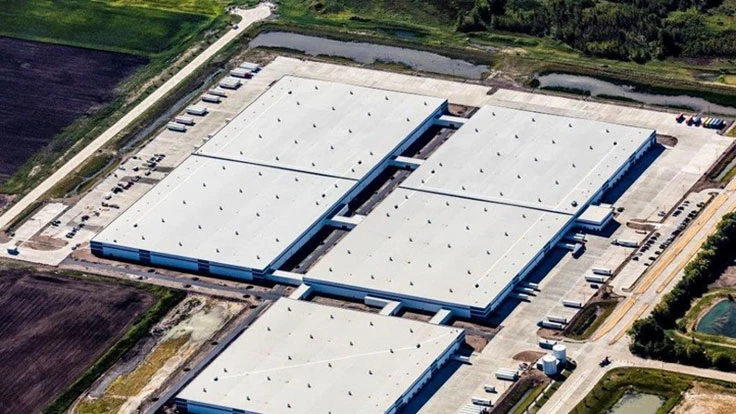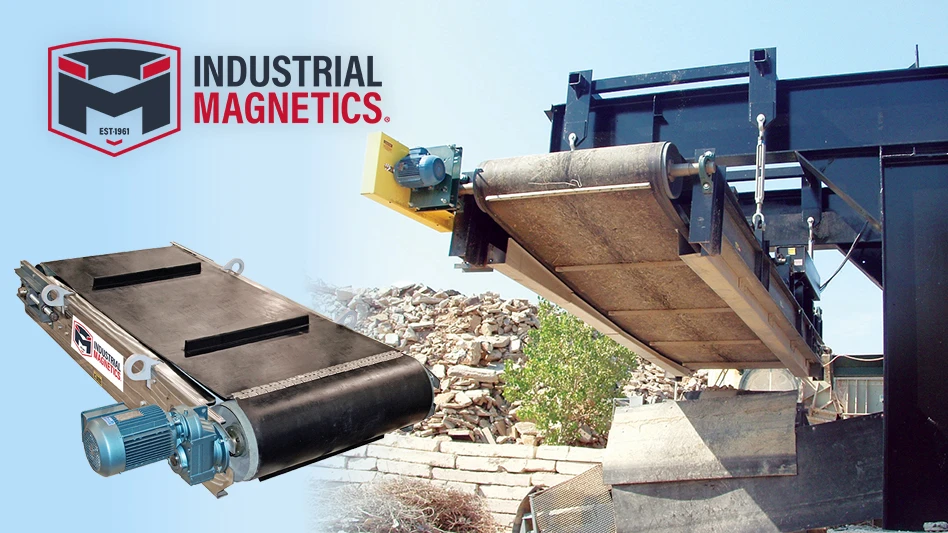
Michelin North America Inc., Greenville, South Carolina, announced that the U.S. Green Building Council (USGBC) has awarded the Leadership in Energy and Environmental Design (LEED) Gold certification for the company's Midwest Distribution Center in Wilmington, Illinois.
"Together, the team working on this project was able to find opportunities at the early stages of design for sustainability and efficiency and implement them by employing a creative approach to the facility's construction," says Pete Selleck, chairman and president, Michelin North America.
The Michelin distribution center, which roughly comprises the size of 30 football fields, is a single-story warehouse that serves Michelin customers in the Midwest region. A few of the environmental features of the Michelin Midwest Distribution Center that led to the LEED Gold rating include:
- Construction waste management—More than 92 percent of the building's construction debris was diverted from local landfills and recycled into new products.
- Recycled content—Post consumer and pre consumer products and material represent 30 percent of the cost of products used to construct the site. Examples of these materials included steel, concrete, drywall, carpet, doors and insulation.
- Optimized energy performance—The facility is projected to be 59 percent above a baseline energy model, with interior and exterior LED lighting contributing to much of the energy savings.
- Minimizing ozone depletion—Michelin's heating and cooling systems in the facility do not use chlorofluorocarbon (CFC)-based refrigerants, hydrochlorofluorocarbons (HCFCs) or halons.
- Water use reduction—The Michelin warehouse is able to achieve significant water savings through the installation of efficient plumbing fixtures for the toilets, showers and all sink faucets, all of which saves 44 percent of the facility's water when compared to the LEEDv3 water baseline. In addition, native and adaptive plants were selected for the outside landscaping, which eliminated the need for a permanent irrigation system.
- Green power—35 percent of the building's projected energy use for at least the next two years will come from renewable sources.
- Alternative transportation—In a concerted effort to promote and encourage the use of bikes and low-emitting and fuel-efficient vehicles, Michelin and its builders reserved bike storage for 5 percent of the staff and visitors and provided reserved parking spots for qualifying fuel saving cars.
Latest from Construction & Demolition Recycling
- Liebherr appoints managing director of Liebherr USA Co.
- Construction hiring slowest since early pandemic
- Metal roofing sector sees growth opportunities
- Liebherr brings heavy iron to NDA convention
- Viably named authorized Diamond Z distributor in California, Arizona and Nevada
- New York legislators propose resolution to revoke landfill operating permit
- Smarter, faster, safer
- Case adds dealer in Alabama





